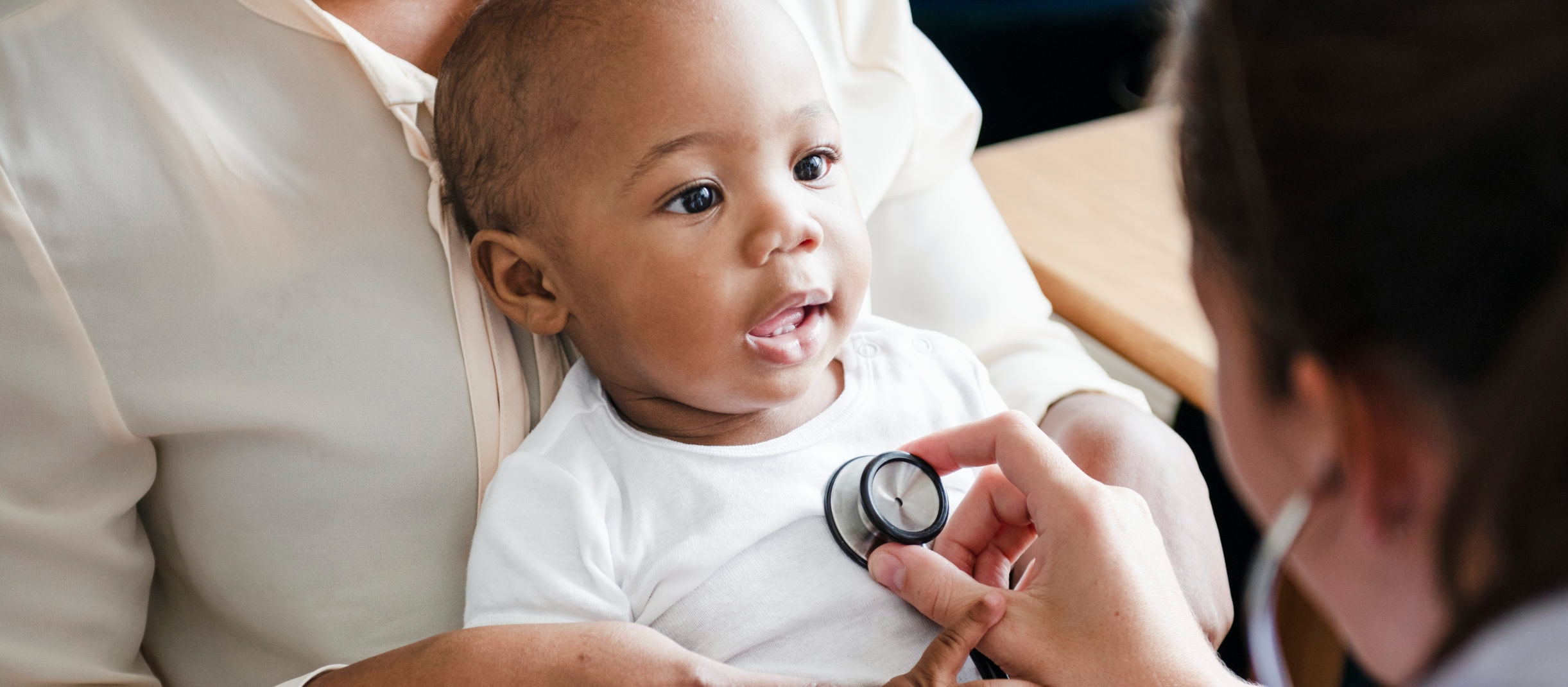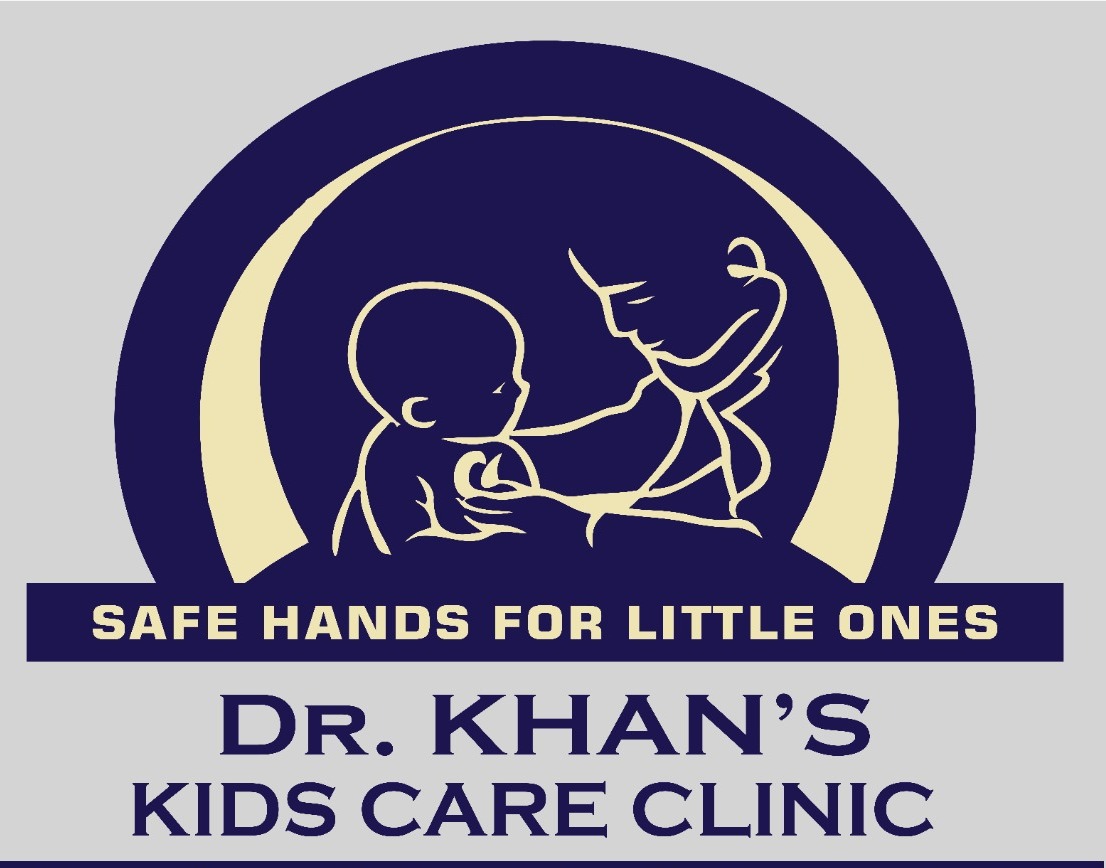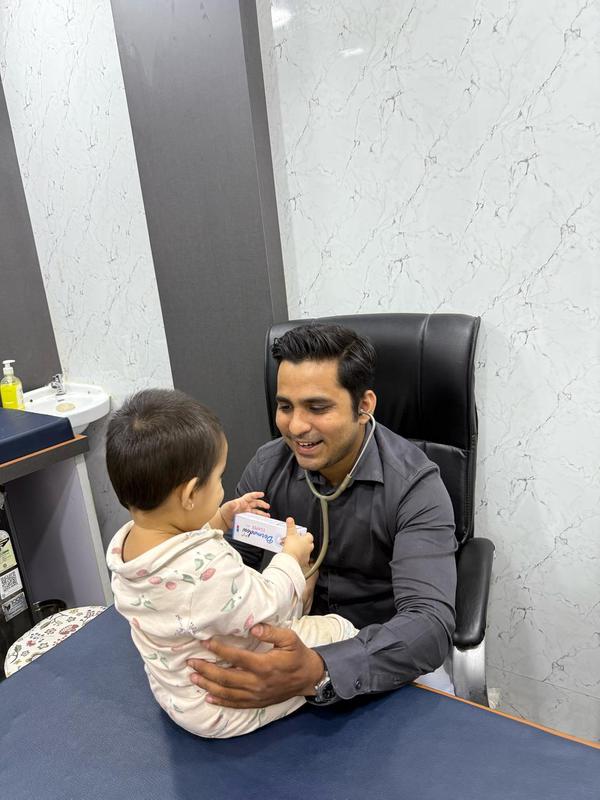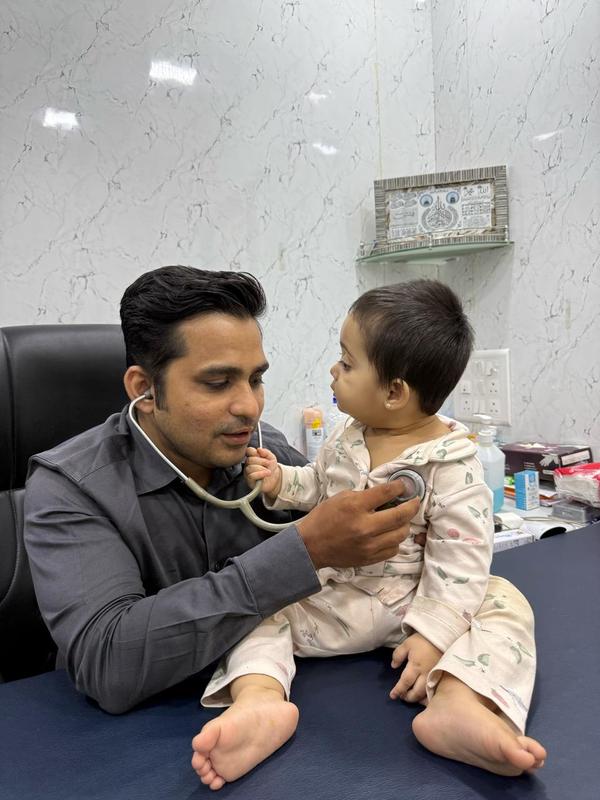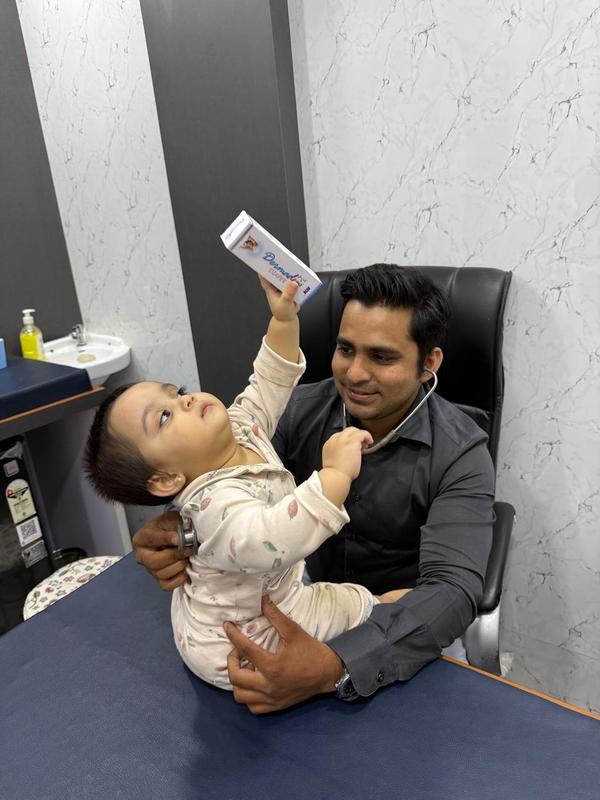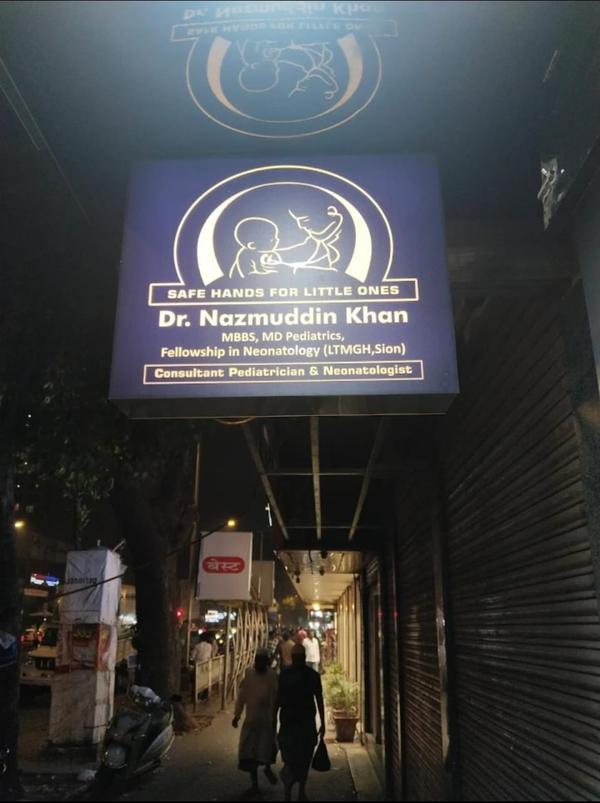Pediatric Consultation (0-18 years)
🧑⚕️ 1. General Consultation Framework✅ Key Components of a Pediatric Consultation:History:Prenatal history (maternal health, complications)Birth history (gestational age, mode of delivery, birth weight)Developmental milestones (motor, social, speech, etc.)Family medical history (genetic, chronic conditions)Social history (home environment, school, activities)Immunization history (vaccination schedule and adherence)Physical Examination:Growth assessment (weight, height, head circumference)Vital signs (temperature, heart rate, respiratory rate, blood pressure)General appearance (hydration, color, alertness)Systemic examination (head-to-toe including respiratory, cardiovascular, gastrointestinal, neurological)Developmental and Behavioral Assessment:Developmental milestones (motor, cognitive, speech)Behavioral observations (attention, mood, activity level)Social interaction (play, peer relationships)Screening & Preventive Care:Growth charts: Plot on appropriate percentile charts (WHO/CDC)Immunization review: Ensure up-to-date vaccinations (following national guidelines)Vision and hearing: Screen for common issues like amblyopia, strabismus, hearing loss🧸 2. Pediatric Consultation Areas by Age Group🍼 Infants (0–12 months):Common Concerns: Feeding difficulties, colic, growth monitoring, developmental milestones (rolling, sitting, babbling)Key Focus:Feeding: Exclusive breastfeeding or formula feedingImmunizations: Ensure vaccination schedule is followed (BCG, DTP, OPV, Hib, Hepatitis B, Rotavirus, PCV, MMR)Developmental Milestones: Monitor for motor, social, and language milestones (head control, smiling, babbling)Parental Guidance: Sleep hygiene, safe sleep practices, breastfeeding support🧒 Toddlers (1–3 years):Common Concerns: Language development, tantrums, behavior issues, eating habits, potty trainingKey Focus:Nutrition: Transition from milk to solid foods, balanced diet, iron-rich foodsBehavior: Encourage positive reinforcement, limit setting, and address tantrumsImmunizations: Follow-up on MMR, DTP booster, Varicella, Hepatitis A (if recommended)Developmental Milestones: Walking, talking in simple sentences, potty trainingSafety: Injury prevention, childproofing home, car seat safety🧑⚕️ Preschool (3–5 years):Common Concerns: Speech delays, sleep difficulties, socialization, toilet trainingKey Focus:Social Skills: Encourage socialization and interaction with peersImmunizations: Review DTP booster, MMR booster, Varicella, InfluenzaDevelopmental Milestones: Complex sentence formation, motor skills (running, jumping)School Readiness: Early learning stimulation, readiness for schoolSafety: Prevention of accidents (e.g., choking, falls)👦 School-Aged Children (6–12 years):Common Concerns: Learning difficulties, behavior, growth concerns, school performanceKey Focus:Growth Monitoring: Monitor growth and development, assess nutritionImmunizations: Influenza, HPV (at age 11–12), DTP boosterBehavioral Health: Address bullying, anxiety, ADHD, and behavioral concernsSchool Performance: Discuss academic progress, social skills, vision, and hearing screeningSafety: Injury prevention (sports, helmet use, road safety)🧑🎓 Adolescents (13–18 years):Common Concerns: Pubertal changes, acne, menstrual issues, mental health, risky behaviorsKey Focus:Pubertal Development: Assess for normal development (Tanner stages), menstrual health (if applicable)Immunizations: Meningococcal vaccine, HPV (second dose), InfluenzaMental Health: Screen for depression, anxiety, self-esteem, peer pressure, eating disorders, self-harmSexual Health: Discuss contraception, safe sex practices, sexual orientation, STI preventionSubstance Use: Screen for alcohol, tobacco, or drug use; provide counselingSafety: Address driving safety, injury prevention, and promote physical activity💉 3. Preventive and Screening ServicesRoutine Screening: Regular screenings for vision, hearing, oral health, and developmental concerns.Mental Health Screening: Early identification of depression, anxiety, and other psychiatric issues.Vaccination: Ensure all recommended vaccines are administered on time (e.g., MMR, HPV, Tdap, flu).Growth and Development: Monitor via growth charts and assess progress with developmental milestones.Nutritional Counseling: Assess for growth failure, obesity, or other nutritional issues.🩺 4. Common Pediatric Conditions to AddressInfections: Upper respiratory tract infections, gastroenteritis, ear infections, pneumonia, viral illnesses (e.g., chickenpox, influenza)Asthma: Diagnosis, management, and education on inhaler useAllergies: Food allergies, environmental allergies, and anaphylaxis managementSkin Conditions: Eczema, rashes, impetigo, and fungal infectionsCongenital Conditions: Follow-up care for congenital heart disease, metabolic disorders, and developmental delaysChronic Conditions: Asthma, epilepsy, diabetes, ADHD, obesity🚨 5. Emergency and Urgent CareInjuries: Sprains, fractures, head trauma, burns, and cutsAcute Illness: Dehydration, high fever, vomiting, and diarrheaSevere Allergic Reactions: Anaphylaxis and management with epinephrineMental Health Crisis: Self-harm, suicidal ideation, or severe depression🧑👧👦 6. Parent and Caregiver EducationSafety Measures: Accident prevention, childproofing, helmet use, and car seat safetyImmunization Importance: Educate about vaccine schedules and the importance of timely vaccinationsMental and Emotional Health: Help parents recognize signs of developmental delays or mental health issues and provide appropriate referralsNutrition and Physical Activity: Promote healthy eating, avoiding junk food, and encouraging daily physical activity
READ MORE


